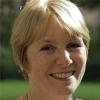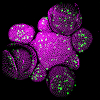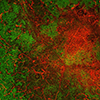
Game-changing synthetic biology developments that could help address global health and agriculture challenges will be examined at a three-day international synthetic biology symposium at the Sainsbury Laboratory, University of Cambridge, this spring (16-18 April 2018).
The symposium, “Crossing Kingdoms”, will bring together leading scientists from across the world to share their research advances in genetic engineering and genome editing for re-engineering biosynthetic, developmental and signal transduction pathways.
The symposium, which is organised by Dr Philip Wigge (Sainsbury Laboratory, University of Cambridge) and Professor Alain Tissier (Leibniz Institute of Plant Biochemistry) will explore the emerging field of synthetic biology that is focusing on creating new pathways using large gene constructions. Dr Wigge said: “With the world population rising by six million every month, we are going to need more food, more water, and more energy. This requires us to make some major leaps forward in research to improve, for example, crop productivity. Synthetic biology is moving from being able to change one or a few proteins as a result of changing a small number of genes, to altering many genes at once. The goal is to alter the whole behaviour of a cell – in a sense you could think of it as re-wiring the cell. For example, one of our speakers, Dr Giles Oldroyd will discuss his research into creating new strains of cereals that can fix their own nitrogen through root nodulation, which is a system that is seen in the roots of legumes.”
“There is a global effort to develop synthetic biology tools to perform large-scale changes to living cells, enabling for example entire biosynthetic pathways to be moved between systems and opening up new horizons in medicine and ag-biotech.”
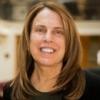 The symposium keynote speaker will be Professor Pamela Silver, who is a pioneer in synthetic biology and a leading biologist and bioengineer at Harvard University. Professor Silver has made contributions to other disciplines including cell biology, systems biology, RNA biology, cancer therapeutics, international policy research, and graduate education. Professor Silver holds the Elliot T. and Onie H. Adams Professorship of Biochemistry and Systems Biology at Harvard Medical School in the Department of Systems Biology. Silver is also one of the founding Core Faculty Members of the Wyss Institute for Biologically Inspired Engineering at Harvard University. Silver was the first Director of the Harvard University Graduate Program in Systems Biology.
The symposium keynote speaker will be Professor Pamela Silver, who is a pioneer in synthetic biology and a leading biologist and bioengineer at Harvard University. Professor Silver has made contributions to other disciplines including cell biology, systems biology, RNA biology, cancer therapeutics, international policy research, and graduate education. Professor Silver holds the Elliot T. and Onie H. Adams Professorship of Biochemistry and Systems Biology at Harvard Medical School in the Department of Systems Biology. Silver is also one of the founding Core Faculty Members of the Wyss Institute for Biologically Inspired Engineering at Harvard University. Silver was the first Director of the Harvard University Graduate Program in Systems Biology.
The other plenary speakers are:
|
|
Alison Smith University of Cambridge |
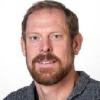 |
Giles Oldroyd Sainsbury Laboratory University of Cambridge |
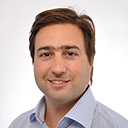 |
Matias Zurbriggen University of Düsseldorf |
 |
Anne Osborne John Innes Centre |
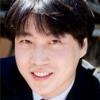 |
Chang Liu UC Irvine |
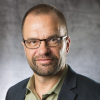 |
Daniel Voytas University of Minnesota |
 |
Ben Blount Imperial College |
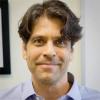 |
Sean R Cutler UC Riverside |
As well as plenary talks and discussions, there will be a number of workshops on key emerging areas of synthetic biology, with contributions from leading scientists in the field as well as industry. The workshops will provide researchers a forum for exploring technologies and methods, including the use of robotics and commercial gene synthesis.
The symposium “Crossing Kingdoms” will be held 16-18 April 2018 at the award-winning Sainsbury Laboratory building in the Cambridge University Botanic Gardens. Please see the symposium website http://crossingkingdoms.org/ for more information and to register to attend and present.
Oral and poster presentations invited
Submissions for oral and poster presentations are welcome. Abstracts can be submitted online. Dr Wigge is also inviting suggestions for topics and themes for the workshops and sessions.
REGISTER NOW
Early Bird Discount
Save £40 by registering to attend the Crossing Kingdoms symposium before 28 February 2018.
Scholarships to attend
A limited number of scholarships, with free registration for the conference, are available to students. Apply in the first instance to charlie@suzyhowes.co.uk.
The “Crossing Kingdoms” international synthetic biology symposium is supported by the German Ministry of Education and Research (BMBF), the UK Biotechnology and Biological Sciences Research Council (BBSRC) and ERA-SynBio and Sainsbury Laboratory, University of Cambridge.
 |
 |
|
|
|
||
 |
|
|
|
|

